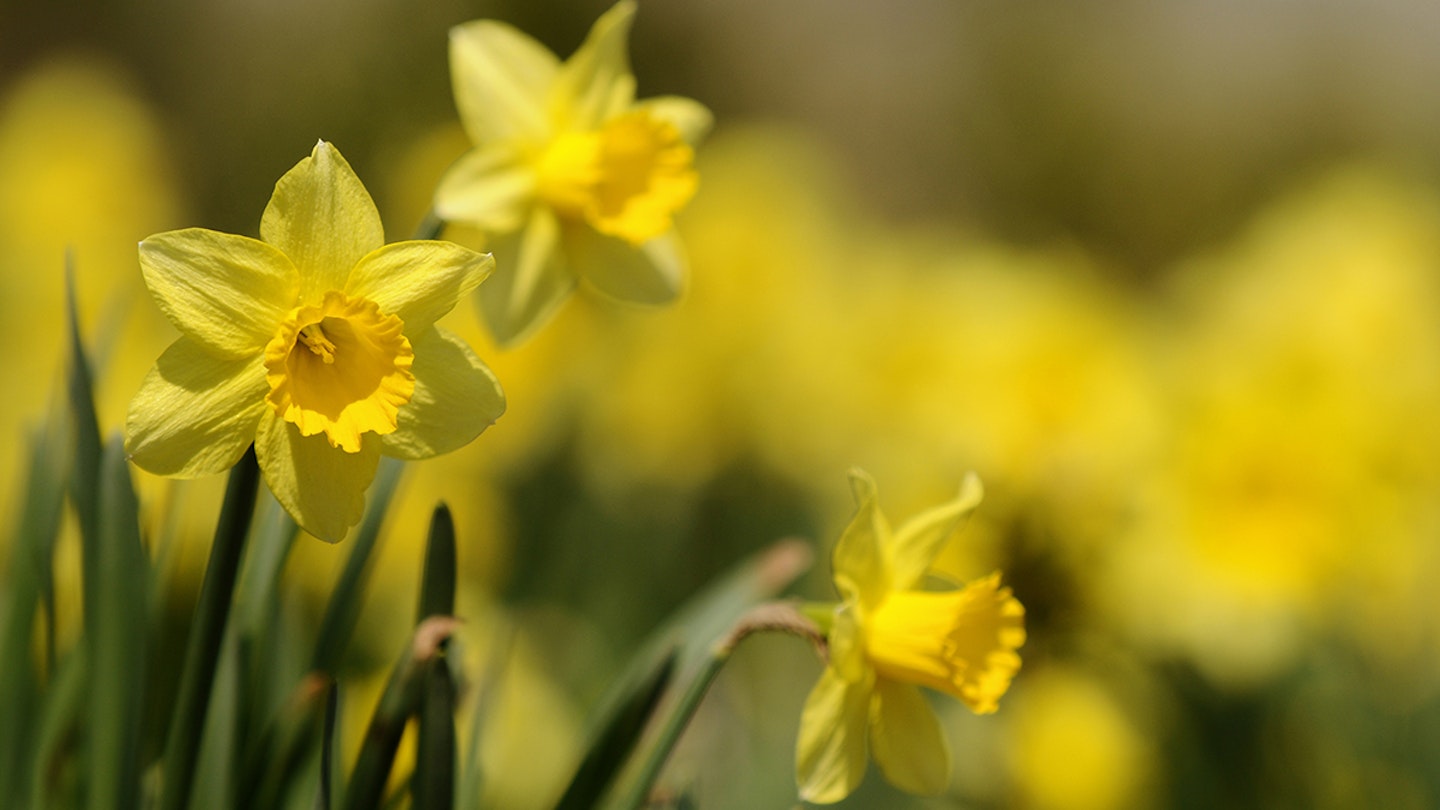Last year, we invited you to plant a special daffodil in memory of a loved one. Now, Katharine Wootton discovers who you planted them for and why plants are such a great healer.
There are few things quite as cheering as the sight of a little daffodil timidly poking its head out of the earth, signalling that spring – and all the warmer days and new life that comes with it – is finally here. A sign of hope and positivity, daffodils are of course also closely associated with remembrance. In fact, the charity Marie Curie, who care and support people with a terminal illness, have had the daffodil as their emblem for many years.
That’s why last autumn, as the days were getting shorter and the nights colder, we teamed up with Marie Curie and plant provider, J Parker’s, to create a special daffodil bulb collection. We then invited you, our lovely Yours readers, to plant these in memory of a loved one who is sadly no longer here, knowing that a few months later they would bloom into a glorious tribute to someone who meant so much to you.
Now, here we are coming into spring, and we’ve loved hearing that so many of you have been enjoying seeing the first peek of your daffodils of remembrance you planted all those months ago.
Richard Chambers told us he’d planted his daffodil bulbs under a tree that he and his partner have unofficially ‘adopted’ in memory of their mums, Cherry Smith and Ethel Chambers.
Meanwhile, Lucy Birch planted her daffodils alongside some of her dad’s ashes. She said, “My dad loved nature and the daffodils add colour to the spot before the wild rambling roses come into bloom. It’s a perfect way to remember him.”
Katrina Wood also planted hers in memory of her father, who says she misses dearly, while Sue Nash says her daffodils are in tribute to her first and second husbands, who both died of ill health – one in 2010 and the other in 2019.
Finally, June Parish said she planted her daffs in memory of her “much loved and missed mother.”
We were also delighted to have raised £1,000 from the sales of the daffodils which will go directly to help Marie Curie continue their amazing work brightening the lives of those affected by a terminal illness and their families.
Megan Townshend, Senior Corporate Partnerships Manager at Marie Curie told us: “First of all, I just wanted to say a huge thank you – £1,000 is an incredible amount and will honestly make such a difference. It is enough to fund 50 hours of care from a Marie Curie Nurse.”
While most of these daffodils are currently just starting to raise their sleepy heads, the hope is that they will be in full bloom by the time we mark the National Day of Reflection on March 23. Set up by Marie Curie last year to mark the first anniversary of the national UK lockdown, the idea is that it is a day to support the millions of people who’ve been bereaved during the pandemic as well as reflecting on the lives of people we’ve lost, both in the last couple of years of Covid and beyond.
Thank you so much to everyone who planted daffodils in memory of someone dear to you. We hope seeing their lovely little faces in the sunshine brings you comfort and joy this spring.
If you’d like to receive news and updates on the National Day of Reflection, including how to get involved, visit mariecurie.org.uk/get-involved/day-of-reflection.
Marie Curie Bereavement Manager, Jane Murray, explains how getting out into the garden can help following a loss
The therapeutic effect of gardening has been well documented, from lowering your stress levels to boosting your wellbeing by getting you moving. But it’s thought these benefits could be particularly helpful following a bereavement.
For a start, as you have to focus on the task at hand, gardening allows you to be ‘in the moment’ and this can help you deal with the emotions associated with grief.
The natural daylight and physical activity involved in gardening can also make a huge difference to your mood. If your loved one was into gardening or enjoyed nature, taking up this hobby is a good way to feel connected to them as well as creating a space where you can think about and remember them.
And if you’re struggling with loneliness, gardening on an allotment or asking a friend to help you tidy the garden can be a really productive way of forging friendships and boosting a sense of connection to others.
Finally, there’s the high of accomplishment when you notice something that you planted is growing and blooming, making you feel more optimistic and hopeful.
Even if you don’t have a garden, you can still experience some of these benefits by growing plants on a windowsill or getting involved in a community garden.
And if you don’t know where to start, planting daffodils is always a good choice. A symbol of beginnings and rebirth, you can also be sure they’ll bloom year after year, forever helping you remember the person you planted them for.
